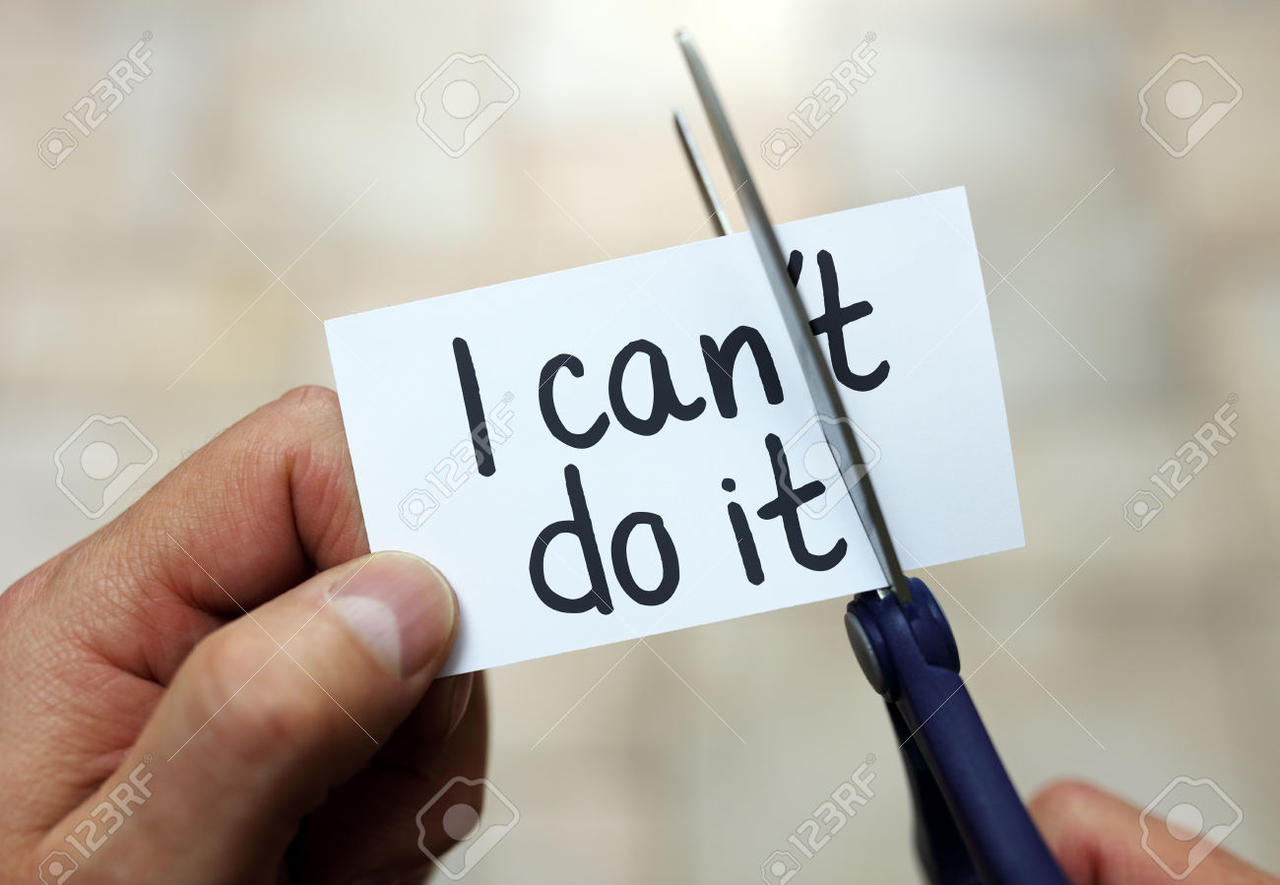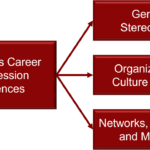
by admin | Apr 1, 2011 | Uncategorized
Career Tip
"At work, you think of the children you have left at home. At home, you think of the work you've left unfinished. Such a struggle is unleashed within yourself. Your heart is rent."
Golda Meir
~~~~~~~~~~~~~~~~~~~~~~~~~~~~~~~~~~~~~~~~~~~~~~~~~~~~~~~~~~~~~~~~~~~~~~~
Managing Unhealthy Guilt
Women tend to experience guilty feelings more than men, perhaps in part due to the fact that women are different emotionally. Some believe that women's brains are wired differently, as they tend to be more highly sensitized to emotions. This can lead to stronger reactions, or an over-functioning response to situations that are emotionally charged.
Guilt can be healthy, for example, when we feel bad after behaving inappropriately or dishonestly. This healthy guilt can increase our motivation to problem solve or teach us an important lesson about the consequences of hurtful behavior. Healthy guilt can also improve our personal leadership skills and enhance our behavior in relationships, making it an advantage from a career perspective.
But what about unhealthy guilt? This type of guilt can occur as a result of persistently feeling devalued, flawed or unworthy. The fear of not doing enough, or not measuring up, is at the heart of this kind of unhealthy guilt. These feelings and the associated guilt is still not uncommon for many women today, despite the enromous strides made in women's careers over the past fifty years.
Fear, coupled with anxious thinking, automatically activates the Stress Response in our body. This response evolved to protect us from danger by triggering a surge of powerful hormones to provide us with the energy needed to defend ourselves or to escape. Joan Borysenko, in her book GUILT is the teacher, LOVE is the lesson, uses a metaphor of the stress response being like the overdrive shift in a car.
It's handy occasionally, but if we keep the car in overdrive all the time, the parts wear out, creating serious mechanical difficulties. In people, these difficulties include severe stress and anxiety-related disorders. Thus begins the career journey to burnout, unless we learn how to quiet the destructive inner voice of guilt.
When our career decisions and strategies are motivated by fear from self-doubt and guilt, the result is often self-defeating behaviours like perfectionism, over-achievement,narcissism, co-dependence and other attempts to bolster our fledgling ego. In Joan Borysenko's words unhealthy guilt is an autoimmune disease of the soul that causes us to reject our own worth as human beings….guilt causes life to become rganized around the need to avoid fear rather than the desire to share ove." Borysenko suggests that healing unhealthy guilt begin with a earch for the true or authentic Self. Her advice also includes that this search journey is enhanced through using a holistic
spirit-mind-body approach. (Source: GUILT is the teacher, LOVE is the lesson by Joan Borysenko, PhD).
For daily management of the anxiety and fear arising from unhealthy guilt, mastering mind-body exercises can be very helpful, e.g. diaphragmatic breathing, mindfulness meditation, and the practice of yoga. A simple place to begin is to learn abdominal breathing. The following exercise is from Joan Borysenko's book Minding The Body:
Mending The Mind–another great resource.
Diaphragmatic Breathing Exercise:
Sit in a straight-backed chair, sliding forward slightly. If needed, place a pillow behind the small of your back. Place one hand palm down over your navel and the other hand on top of it. Without trying to change your breathing, just notice whether your belly expands or flattens when you inhale. It can help to close your eyes to concentrate. If your belly does not move when you inhale, that means you are breathing from your chest. You can shift into abdominal breathing by taking a deep breath in and then blowing it out completely through your mouth. You will notice your belly flatten and can flatten it even more by squeezing out every bit of air. Now just let the next breath flow in through your nose and let your belly expand.
Implement diaphragmatic breathing throughout your day. Two or three minutes of abdominal breathing will immediately reduce tension, anger or stress. You can use this breathing technique whether you are in an important meeting at the office, or standing in
line with kids in the cart at the supermarket.
Take good care of yourself,
Kathleen

by admin | Mar 1, 2011 | Uncategorized
"Think highly of yourself because the world takes you at your own estimate."
How does your self-image support your career well-being? Are you intentional about how you present yourself to the world? Is your projected self-image congruent with the real you?
Self-image is the set of ideas held by a person about her qualities and abilities. Self-image is developed and evaluated over time by daily interactions and life experiences,and is greatly influenced by how we are perceived and assessed by others. Self-image and self-concept are interrelated and as terms, are often used interchangeably.
When life experiences have been negative, the mental image held of oneself (self-image)may be the most significant career hurdle they have to overcome on their journey to achievement and success.
A negative self image is developed from a sense of helplessness, loss of control, pessimism or negative thinking, which have become patterns and a way of life. A negative self-image leads individuals to depend more on external events and people to tell them who they are, rather than a solid foundation of high self regard.
While self-concept or self-image is made up of learned beliefs, attitudes and opinions held of oneself, self-esteem is the emotional aspect–the person's feelings of perceived self-worth.
People with low self-esteem often function out of a fear of rejection, making them more likely to be "pleasers" in their relationships, personally and professionally. This often leads to the person taking on too much in an attempt to validate her self-worth. This can become a vicious cycle of over-functioning. First, there is the temporary relief from the adrenaline fix of "doing for others," but that is
quickly followed by guilt, failure and depression from taking on more than can be handled. The result is further feelings of inadequacy that in turn reinforce the deeply held belief that the person is never good enough, and the cycle repeats itself.
Low self-esteem may also affect one's ability to manage conflict and to be assertive–two skills necessary for building the strong interpersonal relationships needed for career success.
Although a poor self-image can result from accumulated criticism or negative experiences,it can be overcome through positive experiences and the development of competenciesin various areas of one's life.
When an individual feels valued and affirmed by positive experiences, self esteem is generally high and self image is strong. Indicators of high self-esteem include:
* an internal locus of control
* the ability to admit mistakes and apply the learning
* having respect and love for oneself
* accepting responsibility for personal perceptions, responses and reactions
* having the ability to demonstrate a strong character
* being able to give and receive love easily
* demonstrating self-respect, self-confidence and self-acceptance
* honouring individual differences and the point of view of others
From a career perspective, it's very important that a person's projected self-image be congruent with her internal one. Sometimes people project a mask to protect how they really feel about themselves. This incongruent way of being takes a lot of energy to maintain; energy perhaps better spent in personal development therapy
to overcome the feelings of inadequacy.
A strong and positive self-image is easily projected when a person knows and feels confident about her competencies, and when she is applying her natural talents, knowledge, skills and experience in all aspects of her life.
Take good care of yourself,
Kathleen
P.S. To check the level of your self-esteem, google Sorenson's Self-Esteem Test
~~~~~~~~~~~~~~~~~~~~~~~~~~~~~~~~~~~~~~~~~~~~~~~~~~~~~~~~~~~~~~~~~~~~~~

by admin | Jan 31, 2011 | Uncategorized
"There is no such thing as a perfect balance But what is….is constantly making little tweaks to stay in a healthy place." Crystal Paine
A friend contacted me recently asking if I had a one-page handout on work-life balance that she could give to her staff. Her request is the impetus for this month's newsletter.
My first reaction whenever I hear work-life balance is slight trepidation. As a stand alone goal, it can just add to the guilt women already experience in relation to their "work" lives. While they are madly trying to keep everything copasetic, their inner critic starts harping at them for not being more "balanced."
The illusion that life can be balanced is just that – an illusion. I propose that a reasonable feeling of balance or harmony, will consistently be produced when we become intentional about living on purpose and staying true to our priorities.
The importance of knowing your life purpose is bandied about a lot these days – especially in the coaching world. It can feel a bit overbearing but it doesn't need to. Being clear about your life purpose is like having an inner compass. We can take a look at it whenever we feel lost or overwhelmed. We can use it as a checkpoint, by asking ourselves "How does this fit with my purpose?" or "What is the role of this activity in my life right now?"
Knowing the greater purpose you hold for your life helps define why you are doing something, particularly when it comes to taking on large projects or goals. To create the life we want, it's advisable to be aware of why we are spending our energy on something. This is not to justify our actions, but rather to be more intentional about them. Living with purpose will bring you more ease. Choices will become more clear. Decisions will be made with less effort. With that comes a more balanced feeling.
There are many great exercises to help you create your personal life purpose statement. Stephen Covey calls it creating your mission statement. In his book The 7 Habits of Highly Successful People, he suggests imagining you are attending your own funeral. Four speakers, each from a different dimension of your life – family, vocation,community, friends – describe their experience of knowing you. What would you want them to say about you? He invites you to reflect on the essence of their messages to formulate your mission statement.
Marcia Bench, in her book Career Coaching: An Insider's Guide, suggests a processof reflective questions to lead to writing your life purpose statement, such as "What do you love to do in your spare time?" "What cause inspires you to action?"or "What things would your life be incomplete without?" She calls the first half of your life purpose statement the "essence" and suggests that this part stays relatively unchanged over your lifetime.
An example is "to be a healer in the world." The second part of the statement which she calls the "expression" of your purpose, is how you express your essence. She also says that the "expression" of your life purpose may change as your life circumstances change. Using her concept, an example purpose statement may read "My life's purpose is to help women find their power (essence) through supporting their discovery of an authentic vocation (expression).
In the above example, it would seem plausible that if the way I express the essence of my purpose needs to change based on my life circumstances, and when that change is driven by my priorities at that particular life stage, then ideally, this should contribute to me living in harmony or feeling more balanced about my life.
A priority is something to which we pay special attention. Our priorities change as we move through the stages of life. My priorities in my 20's, single and no dependents, were very different from when I was in my 40's, raising two teenage boys plus chasing success in the corporate world. At this stage of my life, neither of those priorities exist. My sons are raising their own sons.
Consider these important ways of being:
* Have a FOCUS for your life (knowing what you want; why you're doing things),
* Establishing good BOUNDARIES (saying "NO" to things that don't fit your current priorities),
* Demonstrating COMPETENCY (modeling behavior that shows you are in charge of your life),
* Feeling a sense of BALANCE (the best formula for feeling balanced is living on purpose and being true to your priorities).
I wish you the most "balanced" year ever in 2011!
Kathleen
~~~~~~~~~~~~~~~~~~~~~~~~~~~~~~~~~~~~~~~~~~~~~~~~~~~~~~~~~~~~~~~~~~~~~~~

by admin | Dec 13, 2010 | Uncategorized
Christmas gift suggestions: To your enemy, forgiveness. To an opponent, tolerance. To a friend, your heart. To a customer, service. To all, charity. To every child, a good example. To yourself, respect." Oren Arnold, Journalist
~~~~~~~~~~~~~~~~~~~~~~~~~~~~~~~~~~~~~~~~~~~~~~~~~~~~~~~~~~~~~~~~~~~~~~~
Managing Christmas Stress
Despite the appearance of joyous enthusiasm this time of year, the reality for many women is an enormous rush of increased stress. The demands of the festive season can make it difficult to implement or maintain regular healthy coping techniques. The extra time to get the shopping done bites into our usual exercise regime. Tempting goodies and drinks override our healthy eating routine. Our budget goes sideways as we overuse the credit card in a desperate attempt to buy all the right gifts. Relationship issues, unresolved conflicts, and the loneliness that is part of the season for many, can seem overwhelming.
When a stressful event happens to us, we automatically evaluate the situation mentally. In other words how we perceive the event affects the level of stress we experience. Responding rather than reacting to circumstancs is most effective for reducing the stress we perceive. Learning to respond, however, requires that we slow down and carefully examine the situation and all of the implications.
Consider the following tips for managing stress this holiday season:
1. How much time do you spend trying to find just the right gifts? (Research estimates women spend up to 100 hours buying gifts, however, the materialistic aspects of festive celebrations in fact undermines well-being, while family and spiritual activities are what increase satisfaction). Try asking for a wish list from each person. Or consider other ways to give, i.e. a contribution of your time to someone, or a donation to a special charity in someone's name.
2. As you make your to do list and check it twice, what could you delegate, drop completely or do differently? What else might help, i.e. consider pot luck meals,or check out the wonderful prepared foods that can be purchased.
3. How realistic are the expectations you hold for yourself and your loved ones at this time of year? Families change and grow. Rituals and traditions can be adjusted accordingly. Choose the ones you want to hold on to and be open to creating new ones. If your grown children can't come to your home this year, how else could you celebrate with them, or who else might share this time with you?
4. Does your increased stress show up in irritable behavior and impatience with others? Consider putting petty grievances aside and accepting people as they are. They may be feeling the effects of holiday stress too.
5. Does the Christmas season represent a time of grief and loss for you? Reaching out to help others can bring consolation. Consider helping a social service agency deliver services to the less fortunate. Being with others who have also experienced loss can help alleviate feelings of isolation. Attending a grief support group or contacting someone whose support has been meaningful to you can also be helpful. We need each other – reaching out is healing.
My Christmas wish for you is that support is bountiful, love is overflowing, and serenity is enduring.
Christmas Blessings,
Kathleen
~~~~~~~~~~~~~~~~~~~~~~~~~~~~~~~~~~~~~~~~~~~~~~~~~~~~~~~~~~~~~~~~~~~~~~~~~~~~~~~

by admin | Nov 9, 2010 | Uncategorized
"Nobody can go back and start a new beginning, but anyone can start today and make a new ending." Maria Robertson
~~~~~~~~~~~~~~~~~~~~~~~~~~~~~~~~~~~~~~~~~~~~~~~~~~~~~~~~~~~~~~~~~~~~~~~~~~~~~~~~~~~~~~~~~~~
Change: Crisis or Opportunity
Sudden change happened in my family recently as my husband suffered an accident resulting in a complex surgery requiring a lengthy physical therapy rehabilitation program. Fortunately, the prognosis is good and at some point we expect our lives to return to "normal."
At the time of this incident a good friend wrote "Life, it feels so routine until it isn't!" What an apt description for how our lives can change drastically in the space of a few seconds.
Indeed, change is a constant in everyone's life. The most challenging changes we face typically occur as a result of a crisis. When change is forced upon us by crisis, it can feel theatening because we may not be in control and we often have limited knowledge of what might lie ahead. This uncertainty can create uncomfortable feelings of confusion, fear or panic. Change can also be particularly difficult
when it means that we must give something up like a cherished hobby, a comforting habit, or a belief-especially about ourselves.
The word "crisis" is derived from the Greek "krisis: and means, literally, "decision." Similarly, crisis is often an opportunity for a time of decision in our lives. However, we often need to experience a period of adaptation to the change before we are open to see opportunity. The adaptation process will be affected by our
pevious experience and personality, as most of us have ingrained, habitual responses to how we perceive and manage change.
However long the process takes, once individuals move through the change process, there arise opportunities to create new visions for the way we want our life to be.
The very nature of change means that what was, is no longer, and what is or what will be, is only limited by imagination or creativity. Areas of our lives that can be open for examination in this visioning process may include purpose, priorities, identity, work, relationships,etc.
The following steps outline a model for confronting and managing change, either personally or professionally:
1. Assess the current situation and the reason for change
2. Clarify or create a new vision
3. Determine the key strategies for achieving the vision
4. Establish the structure required to support the change
5. Develop any required skills necessary to support the process
6. Establish implementation plans including support mechanisms
7. Monitor progress, and reflect.
Success is enhanced when we are able to perceive the crises in our lives, big or small as opportunities for meaning and personal growth and a chance to change direction.
Take good care of yourself,
Kathleen
~~~~~~~~~~~~~~~~~~~~~~~~~~~~~~~~~~~~~~~~~~~~~~~~~~~~~~~~~~~~~~~~~~~~~~~

by admin | Oct 13, 2010 | Uncategorized
Find a career that suits your temperament.
Do what feels natural and comfortable.
~~~~~~~~~~~~~~~~~~~~~~~~~~~~~~~~~~~~~~~~~~~~~~~~~~~~~~~~~~~~~~~~~~~~~~~
The Importance of Temperament
Temperament is an individual's inherited and enduring set of emotional and behavioral tendencies. This article explores how temperament can influence careers and life.
The science of behavioral molecular genetics is working hard to understand whether predisposition is in our DNA – what aspects of temperament are changeable and which ones are firmly established in our genetic make-up.
Carl Jung, founder of analytical psychology, believed that introversion and extroversion qualities are both innate and co-exist within each individual. He proposed that an individual unconsciously presents a mask or a facade, which he called persona, to satisfy the demands of the situation. The theoretical fields studying infant
attachment, social learning and family systems push against the idea of innate predispositions or inborn traits – the age old "nature vs nurture" controversy.
Commencing in the late 1980's, a Harvard psychology professor, Jerome Kagan conducted longitudinal studies that sought to measure the presence and persistence of inborn temperaments.He believed that we have inherited distinctive neurobiological profiles in the amygdala – the brain's early warning system.
Kagan's research on several hundred subjects from infancy through adolesence, indicated that an individual's response to new stimuli produced a mild alarm in some, while in others the identical stimuli signalled an imminent emergency. He termed these differences as low reactive and high reactive. Kagan's research also showed that a highly reactive individual could learn to tolerate what her brain signaled as high risk. In other words, her persona could operate competently enough to manage the nervous or fear-filled situation. However, this same shy, highly reactive type of individual is not likely to choose a career as a politician.
In the last 10 years DNA researchers have identifed genes that increase the likelihood of being shy, optimistic, risk-taking, outgoing and several other temperamental biases. It's important to note, however, that this genetic predisposition does not cause behavior or emotional states, but rather makes us more vulnerable to
them.
This understanding of temperament confirms the importance of finding a career-life niche in which your particular temperament will be of the greatest value. No more squeezing square pegs into round holes. Whether you are a highly sensitive person preferring to avoid large groups or a gregarious, party type – the perfect career awaits your careful and intentional discovery.
Take good care of yourself,
Kathleen
Acknowledgements: Psychotherapy Networker Article: Who Do You Think You are? by Marian Sandmaier)
~~~~~~~~~~~~~~~~~~~~~~~~~~~~~~~~~~~~~~~~~~~~~~~~~~~~~~~~~~~~~~~~~~~~~~~~~~~~~~~~
The Edmonton Woman's Show
I am honored to be speaking at this year's Fall Woman's Show October 16th and 17th
Superwoman is Alive & She's Stressed is being presented at 12:30 on Saturday and
again at 3:30 pm on Sunday.
Taking Charge of Your Career is scheduled for 2 pm on Saturday and 1:30 pm on Sunday.
Both are on the LifeStyle Stage.
Stop by my booth. Enter a draw for lunch at the Hardware Grill.
Hope to see you there!
Order Copies of My Books For Christmas!!
Ordinary Women, Extraordinary Lives:
A Woman's Career Legacy
Part inspirational text, part journal, this book offers a chance to reflect on what
it takes to be a strong woman today while providing a place to record your own career
legacy. A wonderful gift for a special woman in your life…your mom, a mentor,
colleague, friend or yourself.
Ordinary Women, Extraordinary Lives:
A Woman's Career Diary
Whatever your work/family context and values, this career planning diary invites
you to explore your distinctive attributes and to delve into and then document
your career experiences.
Each of these books can stand alone or work in conjunction with one another. While
the Diary provides an opportunity for effective career planning, the Legacy provides
a way to recall important experiences and factors that contributed to your success
and the sharing of your legacy.
Both books make an enduring gift for yourself or someone you love.
Go to www.kathleenjohnston.com [http://r20.rs6.net/tn.jsp?llr=smpmm4bab&et=1103772896620&s=471&e=001uozlDttKBSHKOPhvKA4ZBvbIHYy9qz1gIkZFrcEsXs0EDkRW7_V-vT-ttBXPY-GgmUtUJC2qULnNxGGr943FLaUYwPgZTBvX5gIC9nrovpwFC7Q-tUOnjl_F3xc11G9V]
to order today.
FEATURES
Your Career
The Importance of Temperament
The Edmonton Woman's Show
Books Now Available
~~~~~~~~~~~~~~~~~~~~~~~~~~~~~~~~~~~~~~~~~~~~~~~~~~~~~~~~~~~~~~~~~~~~~~~~~~~~~~~~
Check out Canadian Federation of Business & Professional Women's Clubs [http://r20.rs6.net/tn.jsp?llr=smpmm4bab&et=1103772896620&s=471&e=001uozlDttKBSEDScm8B-dnBjO2lXTklePmBTfJ7U_TC6Shrm8iXbRxnTtsga0FyyR_Eei3653rvFsc9gLhboDal3-hzX_v8VHYDtmpFA8tgkXCD1RgWp6Y7A==]
The Edmonton Chapter held their first meeting Oct. 12th. As their guest speaker,
I was honored to present:
Womens Careers:
Past, Present, Future.
~~~~~~~~~~~~~~~~~~~~~~~~~~~~~~~~~~~~~~~~~~~~~~~~~~~~~~~~~~~~~~~~~~~~~~~~~~~~~~~~
~~~~~~~~~~~~~~~~~~~~~~~~~~~~~~~~~~~~~~~~~~~~~~~~~~~~~~~~~~~~~~~~~~~~~~~~~~~~~~~~
CONTACT
I run a private coaching, counselling, and consulting business.
Check out my web site for Services, or to book a Speaking or Training Event. You
can also contact me directly [mailto:kj@kathleenjohnston.com]with a brief description
of your situation and I'll be happy to follow up










